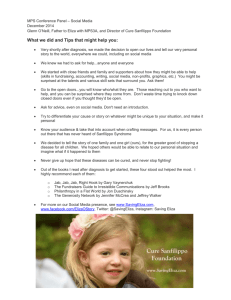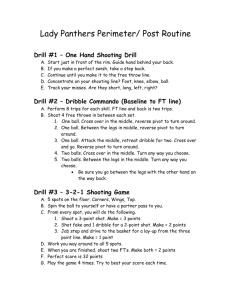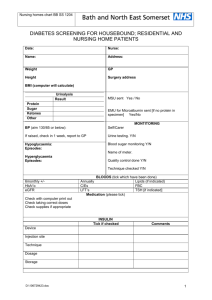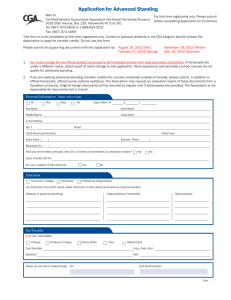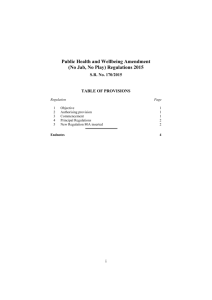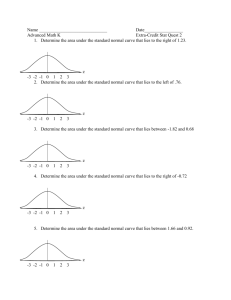Statistical Approaches to Robotics
advertisement
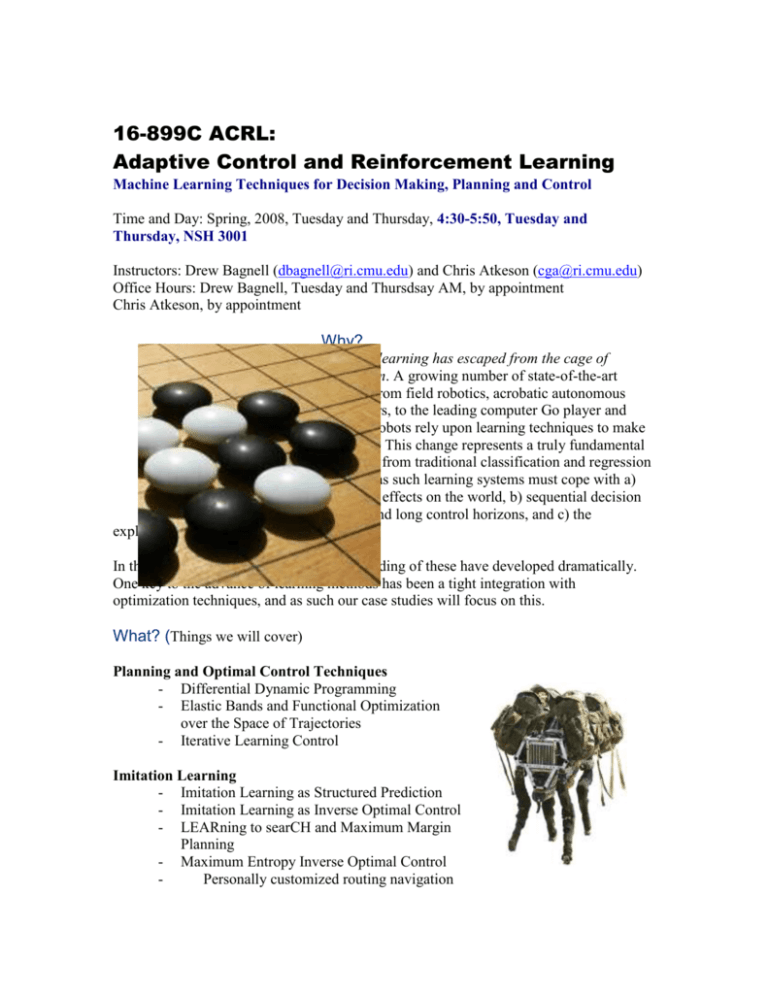
16-899C ACRL: Adaptive Control and Reinforcement Learning Machine Learning Techniques for Decision Making, Planning and Control Time and Day: Spring, 2008, Tuesday and Thursday, 4:30-5:50, Tuesday and Thursday, NSH 3001 Instructors: Drew Bagnell (dbagnell@ri.cmu.edu) and Chris Atkeson (cga@ri.cmu.edu) Office Hours: Drew Bagnell, Tuesday and Thursdsay AM, by appointment Chris Atkeson, by appointment Why? Machine learning has escaped from the cage of perception. A growing number of state-of-the-art systems from field robotics, acrobatic autonomous helicopters, to the leading computer Go player and walking robots rely upon learning techniques to make decisions. This change represents a truly fundamental departure from traditional classification and regression methods as such learning systems must cope with a) their own effects on the world, b) sequential decision making and long control horizons, and c) the exploration and exploitation trade-off. In the last 5 years, techniques and understanding of these have developed dramatically. One key to the advance of learning methods has been a tight integration with optimization techniques, and as such our case studies will focus on this. What? (Things we will cover) Planning and Optimal Control Techniques - Differential Dynamic Programming - Elastic Bands and Functional Optimization over the Space of Trajectories - Iterative Learning Control Imitation Learning - Imitation Learning as Structured Prediction - Imitation Learning as Inverse Optimal Control - LEARning to searCH and Maximum Margin Planning - Maximum Entropy Inverse Optimal Control Personally customized routing navigation Reinforcement Learning and Adaptive Control Exploration - Bandit algorithms for limited feedback learning - Contextual bandits and optimal decision making o “Sliding Autonomy” by contextual bandit methods - Dual Control o “Bayesian” Reinforcement learning and optimal control for uncertain models - “Unscented” linear quadratic regulation Policy Search Methods - Direct Policy Search Methods and Stochastic Optimization o Optimization of walking gaits and stabilizing controllers - Conservative Policy Iteration - Policy Search by Dynamic Programming - REINFORCE and Policy Gradient Methods Motion Planning - Motion Planning that learns from experience o Trajectory libraries o Learning heuristics to speed planning Design for Learnability - Identifying feedback sources - Modular learning design and structured problem - Engineering insight as features and priors Planning/Decision making under Uncertainty Value-functions and stochastic planning Partially Observed Markov Decision Processes and Information Space Planning Belief Compression Value of information and active learning Who? This course is directed to students—primarily graduate although talented undergraduates are welcome as well—interested in developing adaptive software that makes decisions that affect the world. Although much of the material will be driven by applications within mobile robotics, anyone interested in applications of learning to planning and control techniques or an interest in building complex adaptive systems is welcome. Prerequisites As an advanced course, familiarity with basic ideas from probability, machine learning, and control/decision making are strongly recommended. Useful courses to have taken in advance include Machine Learning, Statistical Techniques in Robotics, Artificial Intelligence, and Kinematics, Dynamics, and Control. As the course will be project driven, prototyping skills including C, C++, and/or Matlab will also be important. Creative thought and enthusiasm are required. How? The course will be include a mix of homework assignments that exercise the techniques we study, quizzes to demonstrate proficiency with the theoretical tools, and a strong emphasis on a significant research project. Grading Final grades will be based on the homeworks (30%), midterm (20%), final project (40%), and class participation and attendance (10%) Late homework policy: You will be allowed 2 total late days without penalty for the entire semester. Once those days are used, you will be penalized according to the following policy: - Homework is worth full credit at the beginning of class on the due date - It is worth half credit for the next 48 hours. - It is worth zero credit after that. You must turn in all homework, even if for zero credit. Collaboration on homeworks: Unless otherwise specified, homeworks will be done individually and each student must hand in their own assignment. It is acceptable, however, for students to collaborate in figuring out answers and helping each other understand the underlying concepts. You must write on each homework the names of the students you collaborated with. Project Projects may be done in groups of up to 3 students. The project is an opportunity to make a significant exploration into the application of ideas from the course to a robotics problem. More information to follow. Exams There will be a midterm exam but no final. It will be open book and open notes (no computers allowed). Scribed Notes We use a scribing system in lectures that worked well last year in the course. Since the lectures are very open ended and mostly done on the board, every member of class will take turns taking detailed notes on the lectures which they will type up with any necessary figures (preferably using LaTeX) to be posted on the website. This will help maintain detailed course notes that everyone can look back at and study from later. This will mean that each person in the class (including those auditing) will scribe about 2 lectures. Please be thorough since people will be using these to review for assignments and exams. Your writeups will be graded for a portion of the homework grade. Scribing will be done in alphabetical order A LaTeX template for you to use has been posted to: www.cs.cmu.edu/~dbagnell/ACRL/scribe.tar.gz Lecture notes will be due within 3 days of the lecture. Auditing If you do not wish to take the class for credit, you must register to audit the class. To satisfy the auditing requirement, you must either: - Do two homework assignments, at least one of which must be one of the homeworks requiring the implementation of algorithms discussed in class - Work with a team on a class project Textbooks (all optional) that will benefit discussion Optional Textbook: Probabilistic Robotics, Sebastian Thrun, Wolfram Burgard, Dieter Fox Optional Textbook: Pattern Recognition and Machine Learning, Chris Bishop Optional Textbook: Optimal Control and Estimation, R. Stengle Optional Textbook: Model-Based Control of a Robot Manipulator, C. H. An, C. G. Atkeson, and J. M. Hollerbach, Optional Textbook: Adaptive Control, K. J. Astrom Optional Textbook: Convex Optimization, Stephen Boyd and Lieven Vandenberghe Optional Textbook: Reinforcement Learning: An Introduction, R. Sutton and A. Barto Additional readings will be posted on the course website. Quality Of Life Technology Center Class Many examples throughout the class, homeworks, as well as available class projects will focus on the research needs of the Quality of Life Technology Center ERC. QoLT students are particularly encouraged to use research projects as part of their in class exercises, and to work with the instructors to encourage QoLT relevant homework’s and problem sets. Class Schedule 1) Introduction, Control with no state: Discrete action methods, Continuous action methods (JAB&CGA) 2) Trajectory Optimization 1 (CGA) 3) LQR and DDP (CGA) 4) Sequential Quadratic Programming (CGA) 5) Elastic bands and CHOMP (JAB, Additionally Ratliff and Zucker) 6) Learning without a gradient: Bandit problems (JAB) 7) Learning without a gradient signal: Contextual bandit algorithms (JAB) 8) Tricks for learning kinematic and dynamic models (CGA) 9) REINFORCE and sampling based policy tuning methods (JAB) 10) Imitation Learning: Behavioral Cloning and Better Reductions to Supervised Learning (Papers: Dean Pomerleau's ALVINN Paper, Stephane Ross's \epsilon T reduction) (JAB) 11) Imitation Learning: CGA 12) Imitation Learning as Structured Prediction: Inverse Optimal Control Method (JAB) 13) Inverse Optimal Control and the Maximum Entropy Method, DriveCap Navigator and QoLT (JAB) 14) Robustness: Bayesian Robustness and Policy Search (JAB) 15) Robustness: Dual to interval estimation, H_infinity methods (JAB) 16) Trajectory Libraries (CGA) 17) Midterm 18) Markov Decision Processes : value iteration, policy iteration, Q-learning (CGA) 19) Partially Observed Markov Decision Processes (JAB) 20) Dual Control (CGA) 21) Interval estimation of MDPs (JAB) 22) Function approximation and policies --- what doesn't work in theory and how to hack it in practice, fitted q-learning (JAB) 23) Conservative Policy Iteration and Policy Search by Dynamic Programming-making function approximation work for RL (JAB) 24) Learning Search Control Strategies for efficient planning (JAB) 25) Value-iteration, policy iteration, MPI (CGA) 26) Belief Compression and the Augmented MDP (JAB) 27) Design for Learnability: Identifying feedback, modular design, engineering insight as features and priors (JAB) 28) Iterative Learning Control (CGA) 29) Final Project Presentations 30) ???
